Strengthening Women’s Leadership in Security:
- yowpsudorg

- Jul 24, 2025
- 4 min read
#MwanamkeImara Launches Bold Step in PCVE (Kwale & Kilifi)
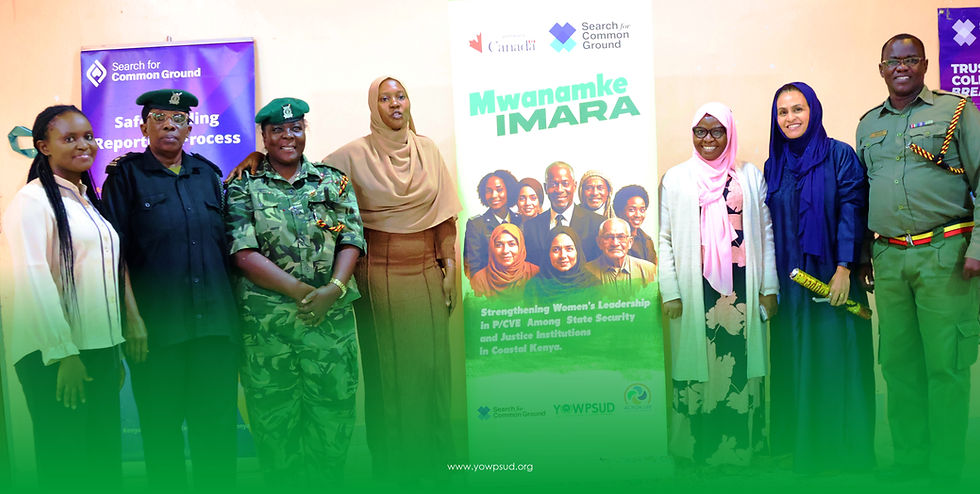
Kwale, Kenya 21stJuly 2025
In a strategic move to embed gender-inclusive approaches in the fight against violent extremism, Youth and Women for Peace and Sustainable Development (YOWPSUD), in partnership with Search for Common Ground (SFCG), officially launched the #MwanamkeImara project in Kwale and Kilifi Counties. The project seeks to strengthen women’s leadership and participation in Preventing and Countering Violent Extremism (PCVE) within state security and justice institutions in Kenya’s coastal region.
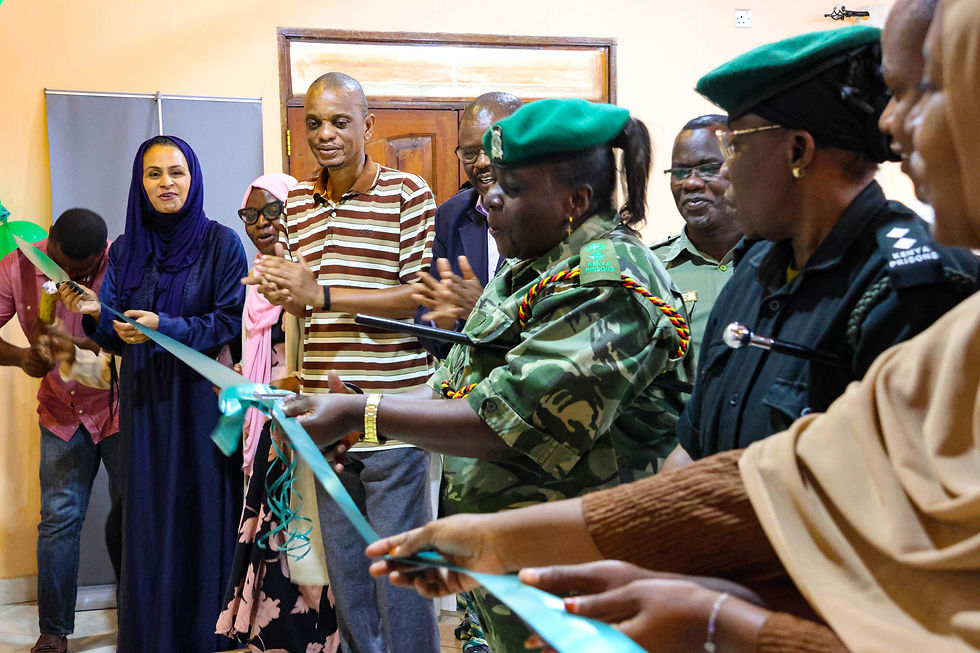
The 2 launches brought together a powerful mix of stakeholders ranging from the County Director of Probation Services, the Officers in Charge - Prison, Coast Guard, National Government, Millitary, Administrative Officers (NGAO), to civil society representatives all unified by a shared goal: creating systems that empower women to lead in peace and security processes.
Why Women's Leadership in PCVE Matters
Research from institutions like the National Counter Terrorism Centre (NCTC) and the Centre for Human Rights and Policy Studies (CHRIPS) shows that while women are often perceived as passive victims of violent extremism, they are also powerful actors in both prevention and rehabilitation efforts. Yet, women remain underrepresented in decision-making roles within the very institutions tasked with promoting peace and justice.
According to a 2022 CHRIPS report, only 14% of officers in national security leadership positions in Kenya are women, and even fewer serve in counterterrorism or strategic operations roles. This underrepresentation limits not just gender equality, but also the effectiveness of peacebuilding efforts. Evidence globally and locally confirms that peace processes are 35% more likely to succeed when women are meaningfully included.
Mwanamke Imara is directly responding to evidence-driven observations by equipping women leaders within state and justice institutions with the skills and agency needed to lead early warning and prevention processes in the context of PCVE. The project’s strategy is anchored in building gender-balanced institutional capacity, in alignment with national PCVE policy shifts and the global priority areas identified by the United Nations Office of Counter-Terrorism (UNOCT). By integrating women into leadership roles and decision-making platforms, the initiative enhances trust, improves situational awareness, and increases the legitimacy and effectiveness of PCVE interventions at all levels.
A Strategic Alliance: Prisons, Police, Probation, NGAO, ODPP & CSOs
By engaging correctional services, probation officers, the Office of the Director of Public Prosecutions (ODPP), administration police, other state actors and CSOs, the Mwanamke Imara project taps into a network of institutions where prevention work often starts or is ignored. These bodies play key roles in rehabilitation, justice delivery, early warning, and reintegration of individuals vulnerable to or exiting violent extremist groups.
For instance, probation officers serve as critical gatekeepers in reintegration programs for returnees or those formerly engaged in extremist activities. Prison institutions are essential for safeguarding against radicalization within their walls, while police and NGAO play an indispensable frontline role in community safety and intelligence.
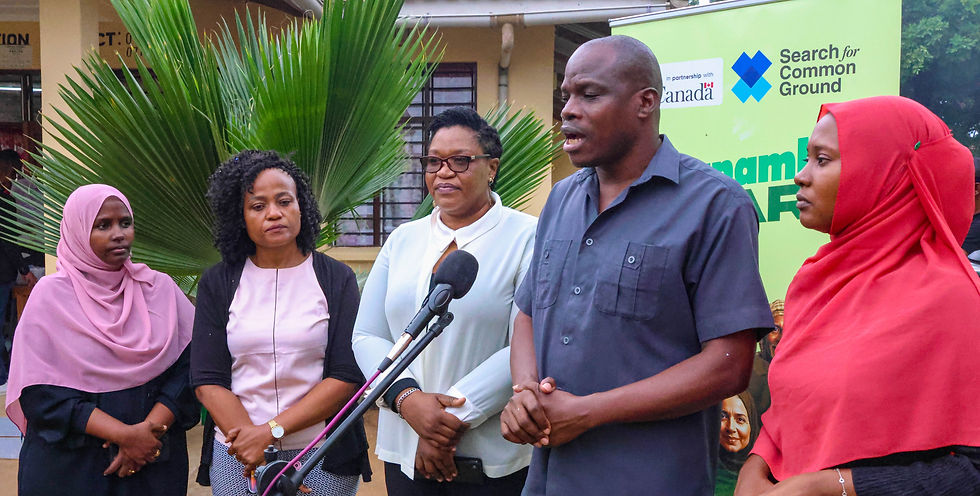
The Mwanamke Imara project directly contributes to the implementation of the Kwale County Action Plan (CAP) on PCVE, aligning with Kenya’s broader National Strategy on Preventing and Countering Violent Extremism (NSPCVE). One of the priority areas under NSPCVE is Early Warning and Timely Response, a space where women’s voices and grassroots insights are often underutilized but immensely valuable.
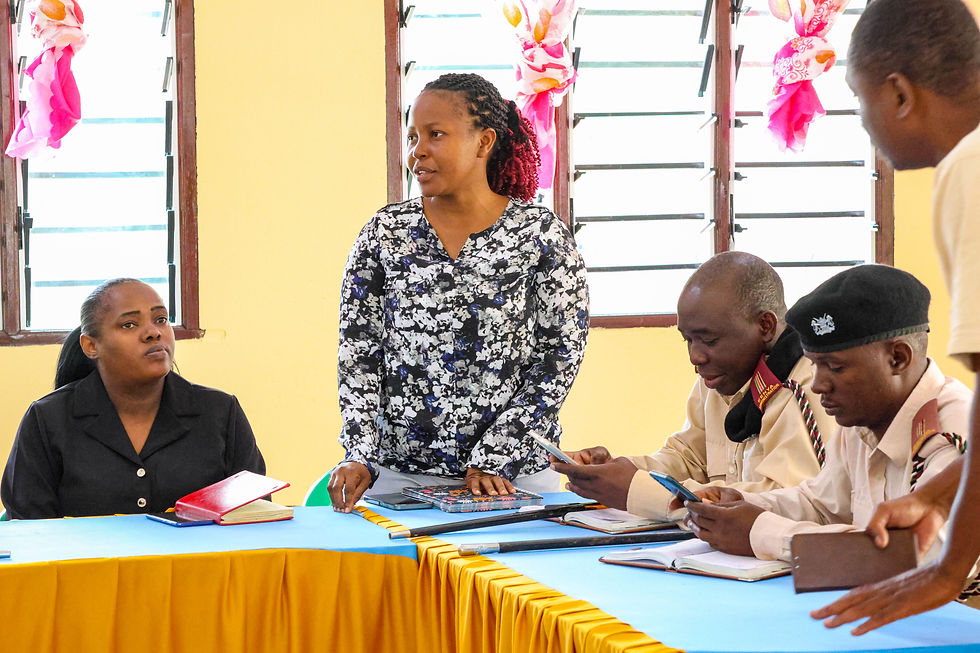
Through its active role in the Training and Capacity Building Working Group under the County Engagement Forum (CEF), SFCG & YOWPSUD is driving change through knowledge transfer, institutional strengthening, and deeper community engagement.
The Mwanamke Imara project builds on this foundation by equipping state and justice institutions with the skills and perspectives needed to adopt gender-responsive approaches, ultimately enhancing inclusive early warning systems and fostering more effective, community-rooted responses to violent extremism.
Gender Dynamics Within Correctional Institutions
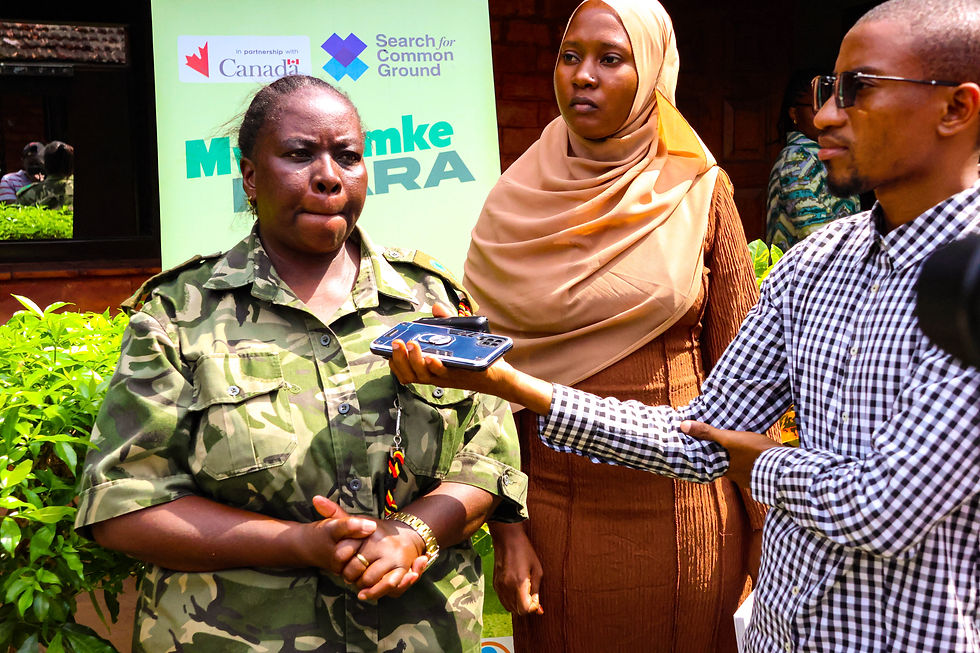
“Behind every successful man, there is a woman and behind every successful woman, there is a man.”
This quote reflects a powerful truth: successful prevention of violent extremism cannot be a gender-exclusive endeavor. In fact, the officer’s comment also highlights the gender symmetry in correctional staffing where men are often posted in women’s prisons and women in men’s prisons. This deliberate policy fosters gender sensitivity, diversity of thought, and better management of inmate needs. It is also a strategic approach to dismantling harmful stereotypes and ensuring that all officers, regardless of gender, can provide trauma-informed and balanced services.
Building Male Allyship in Gender-Responsive PCVE
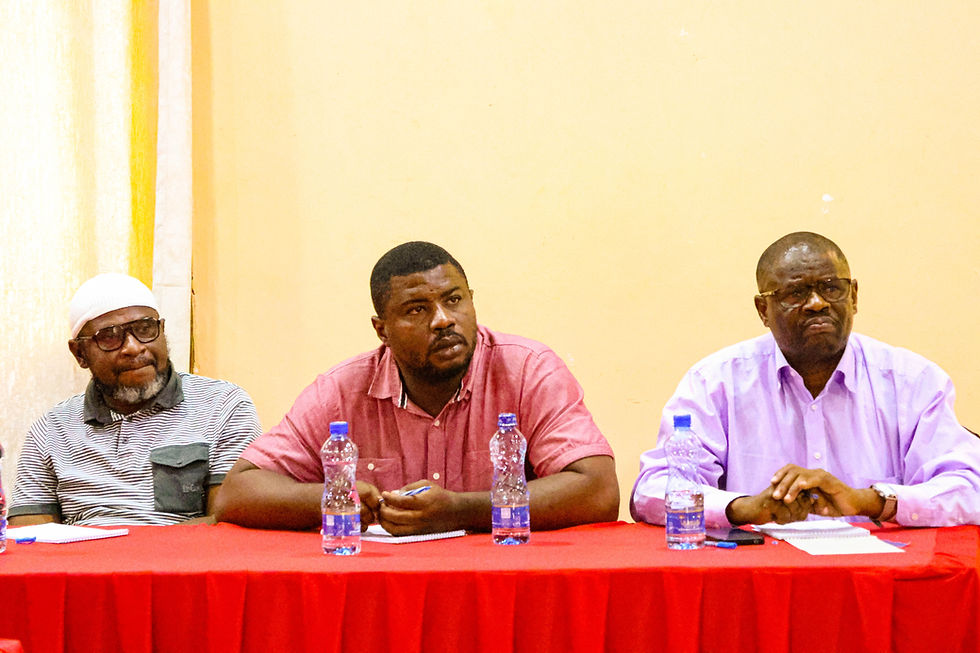
An innovative element of the launch was a gender sensitivity training conducted specifically for male officers from the state and justice sectors. This reflects the project’s commitment to ensuring that inclusion is not just about placing women in leadership roles it is about reshaping attitudes, institutions, and policies to be more inclusive overall.
By educating male officers about the role of women in peacebuilding and PCVE, the project builds much-needed allyship, ensuring women are supported not sidelined in these spaces.
Looking Forward
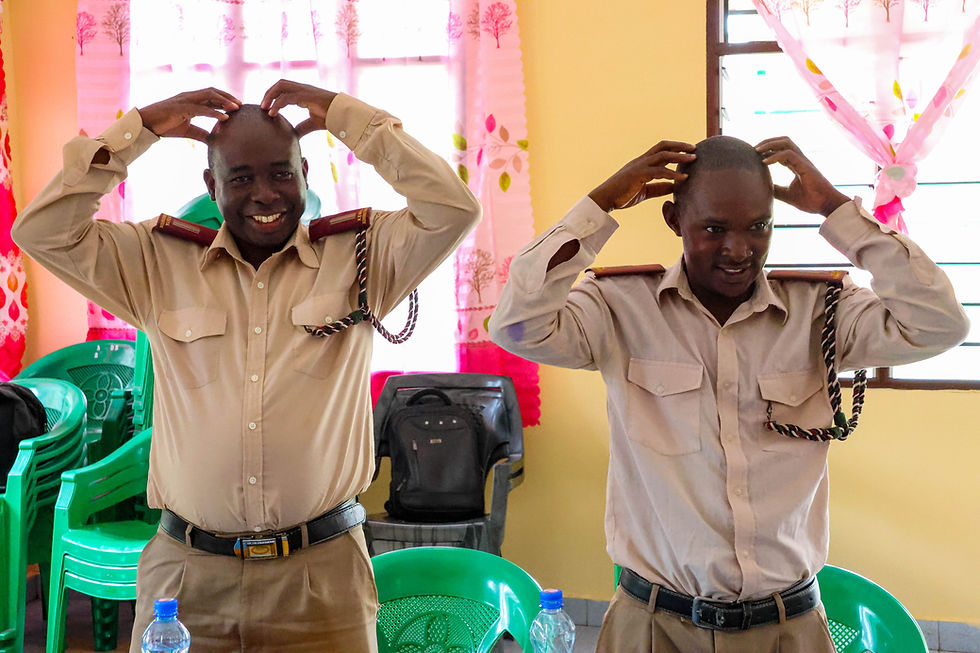
As the coastal region continues to face threats related to violent extremism, projects like Mwanamke Imara present timely, strategic interventions. By equipping women with the tools to lead, while fostering inclusive environments across institutions, the project lays the groundwork for sustainable peace, stronger institutions, and community resilience.
YOWPSUD and its partners are setting a national precedent that inclusion is not a luxury, it is a strategic necessity in the battle against violent extremism.

























































Comments